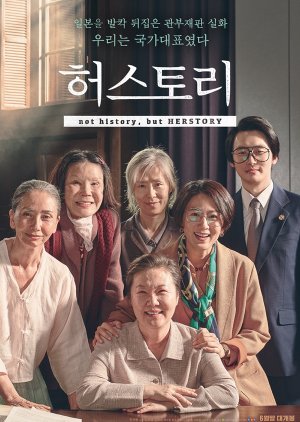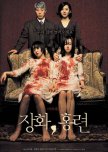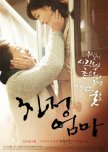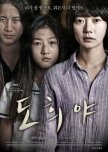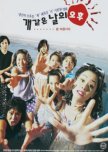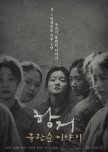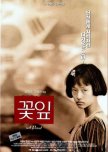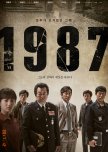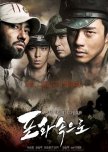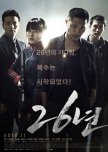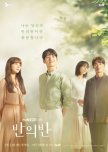
Deze recentie kan spoilers bevatten
It is not a fun movie, yet it is radiating truly positive energy in spite of its appalling topic
"Herstory" is an example of a highbrow KMovie, which has real life as its subject and at the same time influences real life as an impact of the movie reception.It is about the lawsuit brought by a handful of "Comfort Women" from Busan - actual long forgotten/ignored sex slaves for the Japanese soldiers during the Second World War. The trial took place between 1992 and 1998 in Japan. This noteworthy trial set in motion the resolution of a rather dark chapter in recent Asian history.
It was about time to not look away anymore. The subject of "Comfort Women" was until then a taboo subject even in South Korea. The refered to court hearing in the 1990s was actually a milestone in the reappraisal of this chapter. Thus the KMovie "Herstory" is a poignant, publicly effective monument to this chapter in history and honoring the affected, victimized and long forgotten women (and their advocats).
"Herstory" is sensitively illustrating the painful path to this (no less painful) trial as well as its dramatic individual cases. The KMovie becomes the mouthpiecer of at least a few of those women´s fates and at the same time a touching memorial, arousing the awareness of the cruel war crimes committed against civilian women.
It is not a fun movie, yet it is radiating a tuely positive energy in spite of its appalling topic! I consider it in several respects highly valuable.
It is about empowerment and sisterhood. The cast ist outstanding.
This movie is confronting glorious ´his´stories with ´his´ rather tabooed ignominious behaviours... and thus make it ´her´stories.
---------------- SIDE NOTE --- Historical Comfort Women in World War II ---
For a long time, the fate of an estimated 200.000 Korean young women and girls, who were traumatized as sex slaves by the Japanese military during World War II, went unnoticed by the world. Until the 1990s their existence was a taboo - even in South Korea! In fact, Japan's government and military recruited (mostly) Korean young women and girls. They were used against their will in so-called "comfort stations" as "Comfort Women" for motivation of the armed forces - i.e. as sex slaves being abused by the sodliers.
Officially, this fact was (and still is to some extent) vehemently denied by the Japanese side and hasn´t been clarified for more than 5 decades, let alone talked about reparations. However, in terms of international law, what happened has to be considered war crimes, crimes against humanity, as well as slavery and trafficking in women and children - crimes they are. However, the war crimes tribunals after the end of the Second World War were more concerned with crimes against members of the Allies. So in public THOSE crimes against civilian women were forgotten.
With this particular court hearing the movie is refering to, for the first time a verdict in favor of the (comparably few) plaintiffs was at least partially reached. The ladies, who had meanwhile aged, were actually awarded a ridiculously small amount of compensation. So the verdict is still outrageous, but a verdict nonetheless. Nevertheless, as a result, the story of comfort women was publicized for the first time and an international reparation movement was launched.
Obviously the topic had appeared on the table ... but it was still not legally clarified. On the contrary. The issue as such (and its many and even more individuale cases) have still not been satisfactorily resolved ... while most of the actual victims have by now died of age.
Vond je deze recentie nuttig?

 1
1